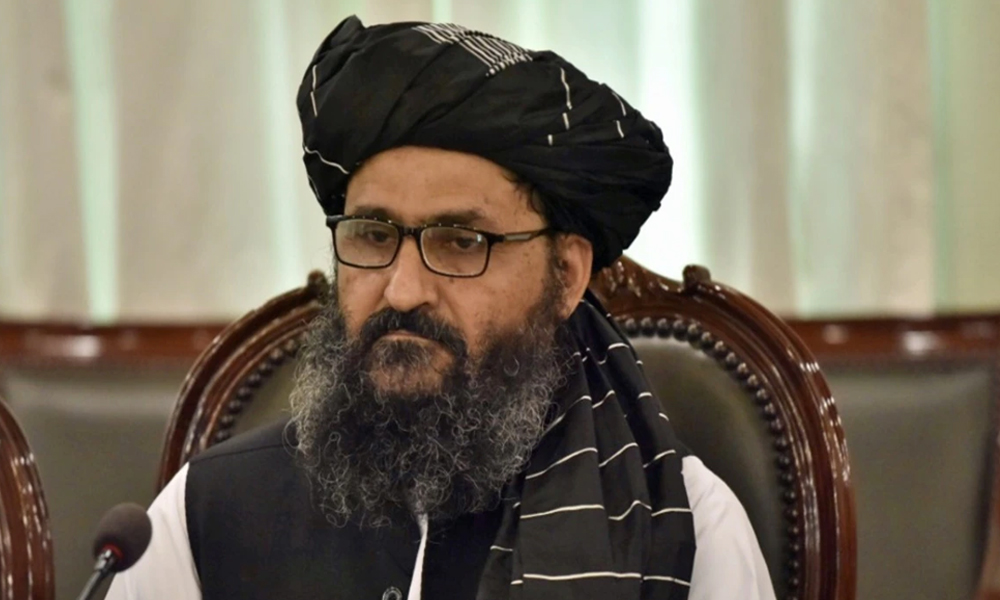Taliban say its committed to peace talks but wants Islamic system

The Taliban said on Sunday it wants a “genuine Islamic system” in Afghanistan and that the group is committed to peace talks and believes in resolving issues through (mutual) understanding.
Mullah Abdul Ghani Baradar, the head of the Taliban’s political office in Qatar, said in a statement issued Sunday that now that foreign forces are on the verge of completing their withdrawal process, “efforts should be made – following the obtainment of independence – to form a system that caters to the aspirations of the Afghan people for tranquility and prosperity.”
“Consolidation of an Islamic system in Afghanistan certainly depends on the Afghans’ mutual compromises, hard decisions and accepting each other because positive advancement is not possible in a time of dissension, war, and confrontation,” the statement read.
The statement comes amid slow progress in the Doha peace talks between the Afghan Republic’s team and the Taliban and a rise in violence across the country.
Officials have meanwhile raised concerns over the slow progress around peace talks and have said the Taliban has not yet submitted a written peace proposal that could be used as a starting point for substantive talks.
Baradar said however in the statement: “We understand that the world and Afghans have queries and questions about the form of the system to be established following withdrawal of foreign troops.
“Our very participation in the negotiations and its support on our part indicates openly that we believe in resolving issues through (mutual) understanding,” he said.
He added that women and minorities would be protected and diplomats and NGO workers would be able to work securely.
“We take it on ourselves as a commitment to accommodate all rights of citizens of our country, whether they are male or female, in the light of the rules of the glorious religion of Islam and the noble traditions of the Afghan society,” he said, adding that ‘facilities would be provided’ for women to work and be educated.
But in May US intelligence analysts released an assessment that the Taliban “would roll back much” of the progress made in Afghan women’s rights if the Islamist extremists regained national power.
Before being ousted by the 2001 U.S.-led invasion, the Taliban imposed a harsh version of Islamic rule that included barring girls from school and women from working outside their homes and prohibiting them from being in public without a male relative.Baradar meanwhile also called on the youths of the country not to migrate.
“Youths are like the backbone of a society. We call on the young generation, you have the responsibility to serve your country and people; the Islamic Emirate will provide you this opportunity. Stay with your families and serve your country and people in order to ensure a proud and comfortable life for yourselves and the coming generations, rather than heading for abroad, away from your families and children, in quest of a morsel of bread.”He also said the Taliban wants to assure the international community that no threat will be posed by the group to foreign diplomats, and NGO workers based in Afghanistan.
“Humanitarian NGOs have been carrying out their philanthropic activities in our country in coordination with the Islamic Emirate for a long time now. The Islamic Emirate sees it as its responsibility to provide a safe environment for their constructive works.”
